Member of
Alternative Title
Ken Putt interview
Date Captured
2022-05-27
Abstract
Ken Putt's father was in the Royal Canadian Electrical & Mechanical Engineers during the Second World War and, with Ken's strength in math and science, he wanted to go into engineering. After completing a degree in metallurgical engineering at the University of British Colombia, he joined Imperial Oil to work as a shift engineer on a large-scale R&D project, Fluidized Iron Ore Reduction (FIOR-RD) in Dartmouth, Nova Scotia. He quickly learned to "do whatever it takes to get the job done", and within three years was a group leader. Later, taking an executive training program as Secretary to Imperial Oil's Executive Committee, he recalls the CEO saying "no one will ever get ahead in this company if they don't exceed their level of authority." From Dartmouth, he spent 18 months working in New Jersey on a coal gasification project, becoming an expert in materials handling. He was then selected to be the company's representative of the Strathcona Refinery in Edmonton, then Imperial's biggest-ever project. He learned chemical engineering "by doing" during the preliminary design, went to the contractor's office in California for the detailed (mechanical) design, and was then sent to Edmonton to do the start up planning and oversee the start up. Eventually, he became Planning and Administration Manager for Esso Materials, then Production Operations Manager for Northern Canada at Esso Resources, then Production Research Manager, then head of the Information Systems Department, and the Director of Imperial and Esso Resources' Upstream Research Centre. He created the Canadian Oilsands Network for Research and Development, now the Canadian Oil Sands Innovation Alliance, for the University of Calgary in 1996, and saw its annual budget grow from $200,000 then to $20 million in 2023. He also served as President of the Canadian Society of Engineering Management, the Canadian Society of Senior Engineers, and the Engineering Institute of Canada, and a Director of the Canadian Academy of Engineering. After taking early retirement, he became a consultant for the National Research Council's Industrial Research Assistance Program offering business and technical advice to private ventures in the program.
Language
Type
Extent
44 mins 08 secs
Subject
Subject (Topical)
See Also
